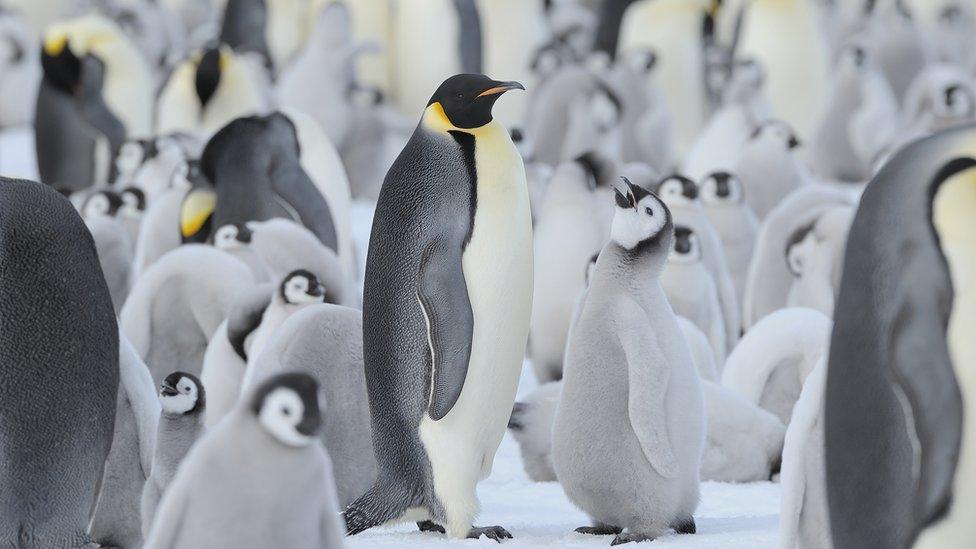Conservation: Four new emperor penguin colonies found thanks to poo
- Published
- comments

Emperor penguins have their babies in the Antarctic winter which can be a very harsh environment to live in
Scientists have found four new emperor penguin colonies taking the total number of known nesting sites in Antarctica to 66.
The discovery was made using images of the Earth taken by satellites and tracing the stains that their poo - also known as guano - leaves on the white ice.
Researchers believe that thanks to these findings, they now know where all the breeding pairs left in the world are.
This is really important for monitoring the species because their habitat is changing due to climate change.
Penguin poo stains the white ice meaning scientists can see colonies on satellite images from space
Emperor penguins are the largest species of penguin, standing at more than 1m tall.
They live in Antarctica where the weather can be extreme, in winter temperatures can reach as low as -60C.
That's why you might have seen pictures of them huddling together to keep warm.
The discovery of four new colonies takes the total of known colonies up to 66
They gather in colonies during the height of the Antarctic winter to mate and lay and hatch eggs.
Colonies tend to be spread out across the continent with about 150 miles (250km) between them.
They bring up their young on the sea-ice connected to the coast called fast ice. The amount of this type of ice is starting to decrease.
Researchers believe they now know where are all the breeding colonies are
The four newly found colonies mean a few thousand individuals have been added to what's thought to be an overall population of around 550,000 emperor penguins.
Dr Peter Fretwell from the British Antarctic Survey (BAS) said: "It's good that even as emperors are being affected by changing ice conditions, we're still finding colonies.
"But it's also clear these birds are going to have to be adaptable, to move around to new sites as those ice conditions continue to change, and we're seeing evidence of this."
- Published6 June 2023
- Published8 February 2023
- Published14 March 2023
